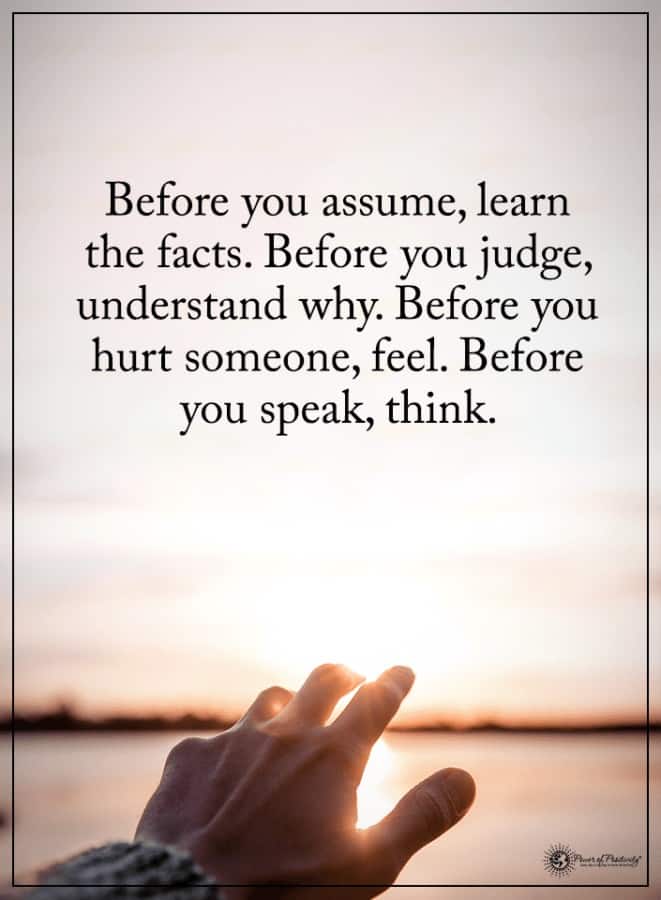Codependent behavior is a psychological condition that involves an unhealthy relationship attachment style. Initially, counselors use the term primarily to refer to partners and family members involved with a person struggling with addiction. However, the definition has since expanded and updated to include a broader range of different toxic attachments.
A lot of codependency is rooted in childhood trauma and instability. This is what makes it so difficult to overcome its behaviors. If you constantly feel exhausted from taking care of everyone else, it may be time to examine your actions. Here are six signs of codependent behavior and how to break the cycle.
Six Early Signs of Codependent Behavior

1. Caretaking
Caretaking is a widespread codependent behavior. In fact, it’s pretty much synonymous with the entire issue! This is the state where you believe you must constantly take care of everyone all the time. Research indicates this is often a result of childhood parentification, where kids must grow up too quickly to take care of siblings or their parents.
If that description applies to you, you’ll feel like things won’t go well if you don’t take care of those around you. You constantly try to be the “mom friend” or ensure everyone else’s comfort above yours. You worry that, by voicing your needs, you’ll harm the comfort of others, so you stay silent. But this only builds resentment and leads to negative relationships in the long run!
2. Lack Of Boundaries
The key hallmark of codependent behavior is a notable lack of boundaries. It’s in the term itself: “codependency,” indicating an unhealthy dependency on someone else who is also dependent on you in a similar way. This lack of boundaries may appear in the following ways:
· Failure To Enforce Limits
You may have attempted to set certain boundaries before. You might have even promised yourself that you won’t be accepting specific treatment anymore. But then, when your limits are crossed, you stay silent and let it happen. You continue to allow these actions, causing your tolerance of them to slowly but surely increase to devastating levels.
· Self-Sacrifice
You constantly give to others at your expense. Your life revolves around others, and you give up time, money, effort, and energy for the people around you. This can even center on just one person, and if so, you’ll jeopardize all other relationships you have for them. You’ll even ruin your career, passions, and goals for their sake. You end up in this martyr position and can’t say no.
· Overstepping
It’s not just about your boundaries. You fail to recognize the typical limitations of others, too. In your attempts to care for them, you constantly overstep. You border on controlling, trying to fix other people and their problems by force and without empathy. When people don’t do as you want them to, you get frustrated and upset.
3. One-Sided Relationships
Codependent relationships are typically highly one-sided. They involve a dynamic where:
- One individual is the “responsible” one, acting as a caretaker and martyr.
- The other individual is highly irresponsible and performs multiple harmful behaviors.
- The “responsible” individual excuses or enables the behavior of the inconsistent individual.
- The irresponsible individual can continually perform their harmful behavior because the “responsible” individual takes care of them.
This negative relationship causes a lot of strain on the “responsible” codependent. A lot of people find themselves in that so-called responsible position. In reality, of course, it isn’t responsible, but an unhealthy and toxic bond where you feel responsible for the actions of others.
4. Avoidance of Personal Emotion
Codependent behavior involves a refusal to focus on yourself. You rely on others and focus only on providing for the people around you to a dangerous and harmful level. This means you’ll often avoid your emotions so you can better focus on the feelings of those around you. Instead of processing your feelings, you perform and experience the following:
· Repression
You’re afraid to be yourself and express your feelings. But those emotions build up whether you want them to or not. And since you’re not willing to voice them, you opt to push them back down instead. You bottle things up and may even seem very happy to those around you. But, deep down, those repressed issues only build up over time and influence your happiness and behaviors.
· Guilt
Whenever you feel strong emotions, you also feel guilty for having them. You feel as though you don’t deserve to experience your emotions. That guilt forces further suppression, making you chastise yourself for having those feelings.
· Denial
Codependent behavior doesn’t make you unintelligent. You’ll likely notice and be aware of various emotions and problems in your life. You may recognize the gravity of multiple situations and how they affect you. But because you want to avoid experiencing that truth, you put yourself in denial about them. You lie to yourself, ignore your issues, and distract yourself from reality, insisting everything is fine.
5. Lack of Trust
Codependent behavior can involve a notable lack of trust in others. You may constantly feel that others are unable to take care of themselves. As such, you become controlling and obsessive over them to save them from themselves. You may also not trust the people who have been good to you because you don’t believe yourself deserving of them. This can also manifest in the following ways:
· You Don’t Trust Yourself
You constantly second-guess your decisions and thoughts. You need other people to validate your choices. Alternatively, you never do anything that you think about doing. You don’t think you’re capable of pulling it off, or you think you can’t do it.
· You Trust The Wrong People
There are some people you trust – but they always seem to end up betraying that faith. You start to wonder if you’re just not worthy of good treatment. In reality, however, you’re subconsciously attracted to people based on your codependency and choose the wrong individuals to trust.
· You’ve Lost Previous Faiths
The people you trusted before have now entirely lost your trust. Sometimes that’s for a good reason, but if it’s fueled by codependency, it might not be. If you were previously religious, you might have lost that faith, too, believing that your god has forsaken you.

6. Lack Of Communication
A healthy relationship involves positive communication. But most codependent behaviors entirely get in the way of that. When you’re codependent, you lack an understanding of your own needs. And if you do know what your needs are, you likely feel uncomfortable or reluctant in expressing them.
This is because there’s a good chance that you believe that your only job is to take care of those around you. You don’t want to assert yourself by stating what you think and feel. You may even communicate with dishonesty, insisting you’re happy and okay when you’re not.
How To Break The Cycle of Codependent Behavior
Now that you see you are trapped in this cycle, here are some ways to help you break free.
1. Improve Self-Esteem
Codependency can’t take root when you have a high, positive sense of self-esteem. Many codependent behaviors stem from a desire to seek validation due to an innate belief that something’s wrong with you. You may:
- Try to prove your worth to others, which is why your boundaries are nonexistent, and you keep overextending yourself.
- Act as a caretaker to others so that you can feel of use to the people around you, as you define yourself by your service to others.
- Ignore your own needs because you don’t think your desires and preferences are valid since you don’t believe in your worth.
To break the cycle of such codependent behavior, you need to start thinking about yourself. Take things slow and treat yourself with compassion as you validate your emotions. Take steps towards self-care and telling yourself that you deserve good things in life. You have to internalize the message that your worth doesn’t depend on your service to others.
2. Detach Healthily
Avoidance is unhealthy, true! But there’s a difference between avoidance and detachment. Healthy detachment is the art of letting go. It’s something that a lot of codependent individuals struggle with. You attach so much to your actions and how people perceive you that it’s tough to live an everyday life without that influence.
It’s essential to understand how detaching isn’t a selfish action. It’s something that ensures your boundaries are kept and met. It separates you from other people in a way that facilitates healthier relationships, giving you room for yourself. Detachment may involve:
- No longer reacting to those around you, instead of staying calm in the face of stressors.
- Disengaging from drama and arguments.
- Setting healthy boundaries and enforcing them.
- Refusing to enable the negative behaviors of others.
- Ceasing criticizing and nagging activities.
- Considering the emotions and needs of yourself.
- Leaving any situations that you’re not comfortable being a part of.
- Listening to others instead of trying to fix or solve their issues.
3. Learn About Yourself
Codependency causes you to struggle to have your own identity. You define yourself by your value and use to others. That’s why a big step in breaking the cycle of codependent behavior is all about learning your own true identity. You have to reconnect yourself after a long time of forcefully turning yourself into whoever you think others want you to be.
You may have lost touch with your goals, dreams, and beliefs, along with your identity. This likely makes it even harder to stop the codependency, as you have nothing to fall back on. Don’t worry – you can take it slow! Begin by asking yourself a few questions, such as:
- What are my hobbies? What do I like doing?
- How can I improve my mood? How can I make myself feel better?
- Who are the people I enjoy spending time with most?
- What are my goals and dreams in life? Is there something I want to do?
Final Thoughts On Some Behaviors Of Codependency And How To Break The Cycle
Codependent behavior is a highly harmful form of attachment. It’ll jeopardize your life and subject you to repeated harm while preventing others from taking their accountability. To escape its clutches, you have to break the cycle. Don’t be afraid to seek professional help for this frightening and challenging process!
The post 6 Signs of Codependent Behavior (And How to Break The Cycle) appeared first on Power of Positivity: Positive Thinking & Attitude.





